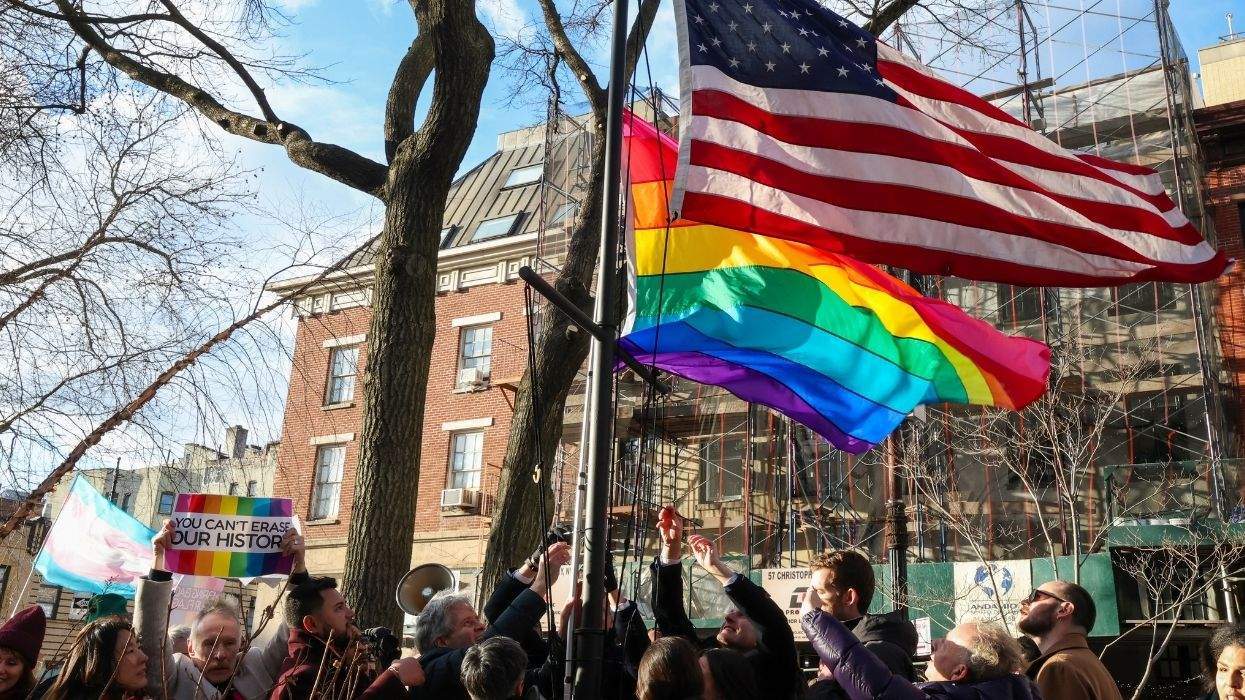While transgender women have disproportionately high rates of HIV, the population has been routinely left out of critical research involving infection prevention measures. A new study is finally beginning to bridge the gap.
For the first time, the Centers for Disease Control and Prevention surveyed transgender women in order to gather data and assess preventative measures for HIV cases in the community. The results, published Tuesday in the Morbidity and Mortality Weekly Report, shed a light on the causes behind the rate of infections.
The main cause, it highlighted, is discrimination.
The report found that the disproportionate rate is caused by lack of access to preventative HIV medication used in pre-exposure prophylaxis (PrEP) as well as "homelessness, discrimination and the association between employment discrimination and health care access and use, and social support and the association between certain types of violence and harassment (gender-based verbal and physical abuse or harassment, physical intimate partner abuse or harassment, and sexual violence)."
Of the approximately 1,600 U.S. transgender women who responded to the survey, 42 percent tested positive for HIV. Broken down by race, 62 percent of Black trans women, 35 percent of Hispanic and Latina trans women, and 17 percent of white trans women tested positive.
Nearly one-third of the 1,600 respondents reported being homeless for at least one month in the last year, with the average period of homelessness being six months. Evictions based on gender identity were a key factor, as 55 percent of such cases resulted in homelessness. Fifty-eight percent of those who were incarcerated also reported facing homelessness upon their release.
Ten percent of the respondents reported being fired within the past year for their gender identity, with 32 percent struggling to find employment because of it. Nearly 22 percent of those who had trouble finding jobs were uninsured, whereas 62 percent were on Medicaid. Those on Medicaid in states where the insurance plan does not cover gender-affirming care were twice as likely to struggle with finding employment.
Sixty percent of respondents experienced gender-based violence, including verbal abuse (53 percent), physical abuse (26 percent), or sexual violence (15 percent) over the last year. Nearly 18 percent experienced suicidal ideation.
All of these factors were also more likely to push transgender women into sex work and drug use. Other components included condomless anal intercourse and nonprescription hormone use, with many who turned to nonprescription hormones doing so out of lack of access to gender-affirming care.
While social support networks proved to be important in the lives of transgender women, the report stated that the most effective solutions lie in "integrating housing services, behavioral health services, employment, gender-affirming medical care, and clinical care are important to improve the living circumstances and quality of life for transgender women."
















Charlie Kirk DID say stoning gay people was the 'perfect law' — and these other heinous quotes
These are some of his worst comments about LGBTQ+ people made by Charlie Kirk.